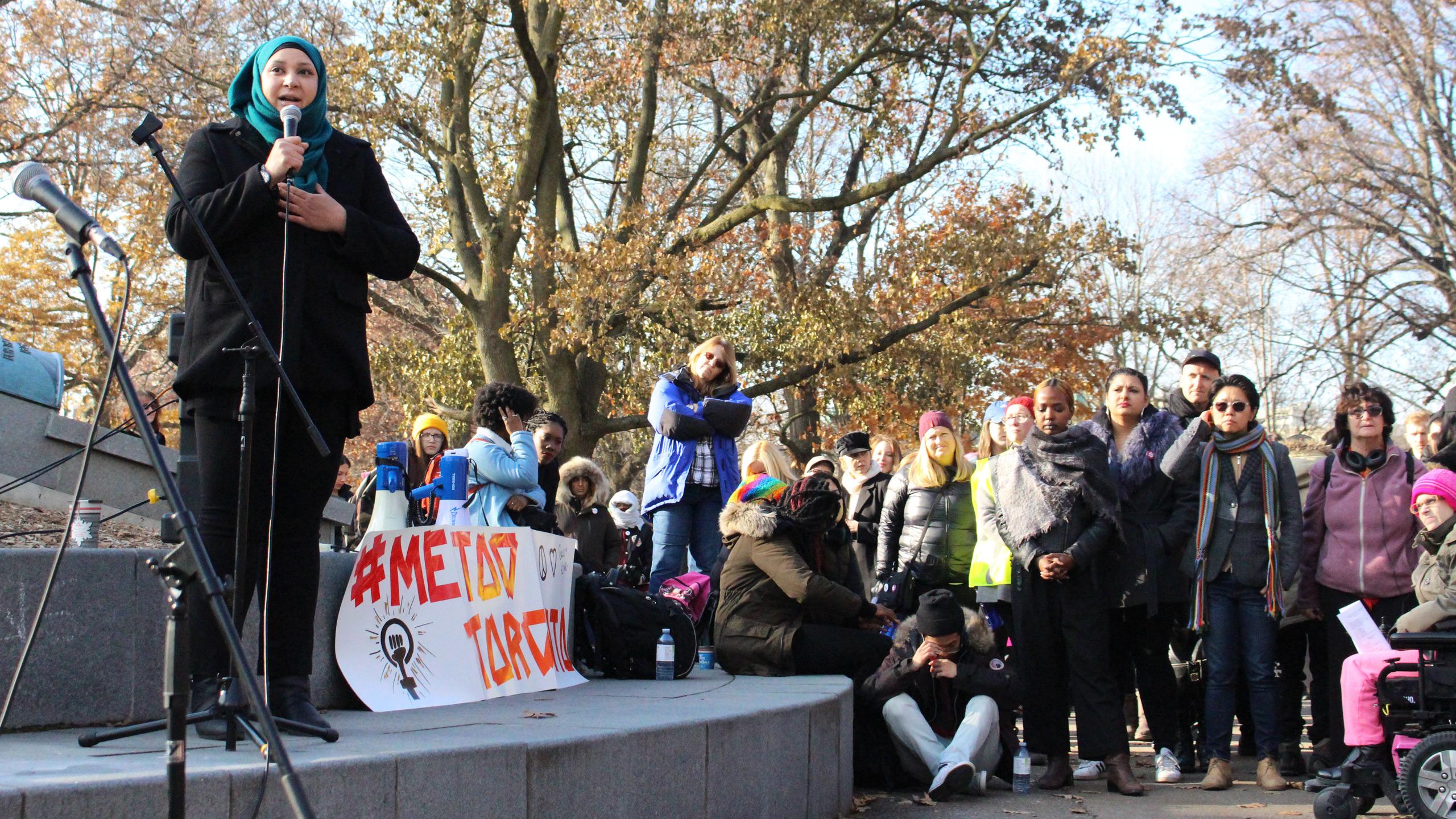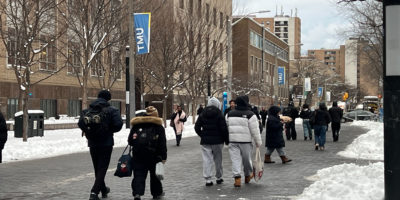By Zena Salem
Several Toronto women organized a march at Queen’s Park this past weekend in order to bring awareness and continue a discussion about the #MeToo movement and sexual violence against women.
The recent #MeToo hashtag on social media sparked a worldwide conversation on intersectionality when addressing sexual violence and inspired the march.
The hashtag’s origin dates back 11 years ago to a black woman named Tarana Burke who had hoped to use the two words in response to a 13-year-old girl telling her about her personal experience with sexual violence.
“Me Too” resurfaced online as a hashtag following Alyssa Milano’s sexual assault allegations against Harvey Weinstein in October.
Yamikani Msosa, who was at the march on Saturday and is a coordinator at the Ryerson Office of Sexual Violence Support and Education, said Black voices are often not centred when sexual violence is addressed.
“[It’s] a constant reminder that our voices are not centred. We know that the ‘Me Too’ campaign started with Tarana Burke. It’s been co-opted, and often our voices are co-opted,” said Msosa.
Msosa spoke about the lack of Black presence in the space and the validation of their voices.
“As I look around, I don’t see many Black folks present here, because I know we are not afforded this space to talk about our pain, we’re not afforded this space to centre our voices around sexual violence.”
Deb Singh, counselor and activist at the Toronto Rape Crisis Centre / Multicultural Women Against Rape said violence against Indigenous people is a result of the ongoing colonial rule.
“I want to acknowledge Indigenous people of this land who experienced the highest level of violence at five to eight times more than non-Indigenous people,” Singh said.
Singh noted that colonization is directly related to gender-based violence. “I want to acknowledge that this is happening because of colonialism that we continue to engage in.”
Arezoo Najibzadeh, a student at Ryerson and co-founder of the Young Women’s Leadership Network, said being a racialized women in politics comes with a lot of pushed aside experiences.
“I hear from Muslim and racialized young women who get called ‘exotic’ because of their names and their big brown eyes. I hear from trans women and non-binary folks whose bodies are constantly tokenized, scrutinized, sexualized, and fetishized in political spaces,” Najibzadeh said.
[ngg_images source=”galleries” container_ids=”374″ display_type=”photocrati-nextgen_basic_slideshow” gallery_width=”864″ gallery_height=”486″ cycle_effect=”fade” cycle_interval=”5″ show_thumbnail_link=”0″ thumbnail_link_text=”[Show picture list]” order_by=”sortorder” order_direction=”ASC” returns=”included” maximum_entity_count=”500″]
Click on the photos to view the gallery. All photos by Zena Salem
Likewise, Farheen Khan, one of the only hijab-wearing woman who ran in the Federal election as an MP candidate, shared her relatability to Najibzadeh.
“I ran in 2015 in federal elections, and I know how difficult it is to be in politics.”
Khan said the continuous rise of Islamophobia post-9/11 has affected her directly as a visible Muslim: “This is the truth of many other Muslim women out there who perhaps don’t have the platform to share what is that they experienced.”
Faelix Kayn, who uses they/them pronouns, said the movement is lacking intersectionality in terms of including communities beyond cisgender women.
“When we think of sexualized violence, who comes to mind? Who has been erased? For non-binary and transgender survivors they can be a point of alienation,” Kayn said.
Kayn noted the dangers of excluding certain communities from certain conversations and spaces.
“Never forget, that without intersectionality, and without inclusion, movements are doomed to repackage and perpetuate the same violence they suffered under,” Kayn said.












Leave a Reply